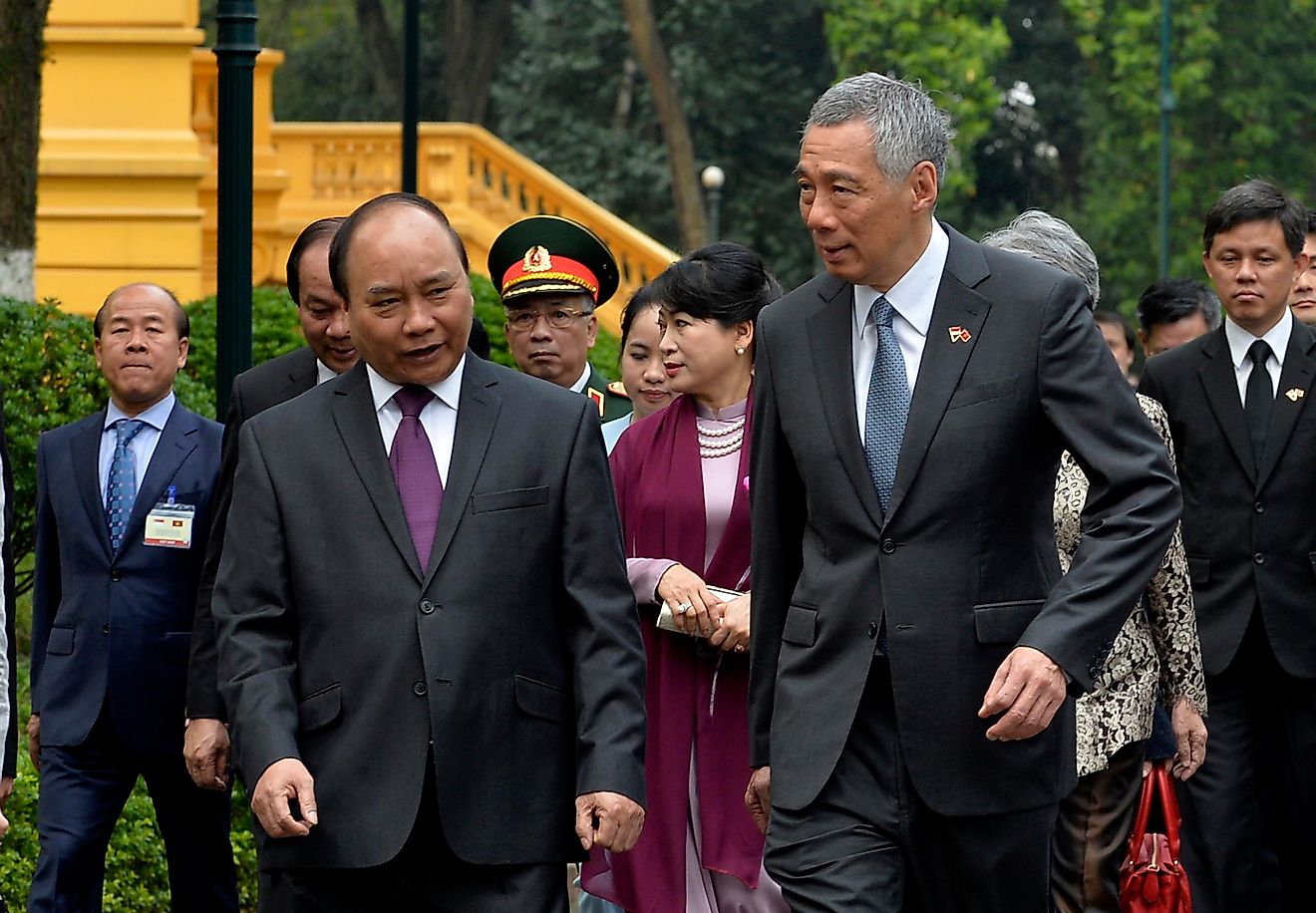Prime Ministers Of Vietnam Through History

The Prime Minister of the People's Republic of Vietnam presides at the head of the Central Government's Council of Ministers. He or she directs government work and is responsible to the National Assembly. The National Assembly elects the Prime Minister and he must report to the National Assembly on his directives and implementation of formal orders. He or she must make regular press conferences to inform his people of the condition of the country. He has the power to suspend decisions made by the cabinet ministers. The tenure of the Prime Minister is five years, renewable only once.
Ho Chi Minh
Ho Chi Minh was a communist revolutionary leader, and concurrently Vietnam's Prime Minister and President both from 1945 to 1955. Born in 1890, Chi Minh was a key figure in the liberation of Vietnam in 1945. In 1941 Minh led the Viet Minh independence movement to establish a communist-ruled democratic republic of Vietnam. In 1965 he stepped down from power because of health reasons but remained an influential figure in the country until his death in 1955. Saigon, the former Capital of Vietnam, was renamed Ho Chi Minh City.
Phạm Van Dong
Dong was the second Prime Minister of Vietnam. From 1955-1976 he served as the Prime Minister of Northern Vietnam. He became the first Prime Minister of a united Vietnam in 1976 until he resigned in 1987. He went down in history as the longest-serving Prime Minister of Vietnam and the world’s oldest serving Prime Minister. He was born to a civil servant family in Quang Ngai Province in March of 1906. In 1925 he developed an interest in the communist party and its course. He served as a lieutenant under Ho Chi Minh and became his successor of the Communist Party of Vietnam. He was arrested in 1929 in Saigon for his revolutionary influence, incarcerated for ten years in Poulo Condor Island Prison and released in 1936 under the general amnesty. He served in the Indochinese Communist Party from 1940 and became the minister of finance when Ho Chi Minh rose to power. He is remembered as a leader of North Vietnam during the war with the US. He had close links with the Chinese government that funded the conflict with South Vietnam. He was also involved in the peace talks that ended conflict during the administration of Lyndon B. Johnson. Even after his retirement, he continued his support against corruption. He died in 2000 at the age of 94.
Phan Van Khai
Khai was born in 1922 to a peasant family in Vinh Long Province. In 1939, the Indochinese Communist Party conscripted him in the war for independence and against the US. From 1946 to 1956 he fought in the First Indochina War and became a spy in South Vietnam. He served in the Communist Party Central Committee in Saigon from 1960. In 1976 he was appointed the chairperson of the People’s Committee. In the early postwar South Vietnam economy deteriorated after the US government withdrew its support plus the harsh enforced Stalinists of the Central government. Hunger and poverty struck the people of Saigon, a former economically developed society. He promoted trade and manufacturing companies, and gradually he became a reformist faction in the party. In 1987 he was elected the First Deputy Prime Minister of Vietnam and as acting Prime Minister in 1988. He continued advocating for the privatization of a state-dominated economy and democratization. In 1997 he was forced to step down by the factionalism after the party failed to create a consensus on a personal arrangement. He is renowned for the economic reform of the 1990s and his achievement of opening Vietnam to the world after years of isolation. He defended the rights of his people from oppressors. He reunited and reconciled with Vietnamese exiles and democratic activists.
Nguyen Tan Dung
Born in Ca Mau in southern Vietnam, Dung became Prime Minister in 2006, serving until 2016. Phan Van Khai nominated him, and the National Assembly confirmed him on the 27th of June, 2006. In 1967 he joined the Communist Party of Vietnam as a protégé of the conservative Le Duc Anh and the reformist Vo Van Kite. He served as a Deputy President from 1997 to 1999. As Prime Minister, he advocated for advanced internet connection and even had a hotline made for the general public to report corrupt government officials. His enthusiasm ensured that the Republic of Vietnam and the post-war generation was wired for a faster economic growth and technology skills. In July of 2011, he was re-elected Prime Minister, and his second term fell short with political chaos ruining what he had established in his first term. The country underwent political terror with freedom and human rights disregarded. Political imprisonments of activists, the press, and humanitarians became widespread. The rehabilitation centers turned to torture and forced labored centers much to the distaste of the world. The country became a planet of nepotism and poverty. In 2012 the government issued a warrant of rest for Nguyen Duc Kien, a local tycoon with close ties to Dung. Public and political outrage forced him to step down in 2016. Vietnam is a one-state party and all Prime Ministers in the country belonged to the Communist Party of Vietnam, the only recognized political party in the constitution. The current Prime Minister is Nguyen Xuan Phuc.
Prime Ministers Of Vietnam Through History
| Prime Ministers of the Socialist Republic of Vietnam | Term in Office |
|---|---|
| Ho Chi Minh (also President at the time) | 1945-1955 |
| Phạm Van Dong | 1955-1987 |
| Phạm Hung | 1987-1988 |
| Vo Van Kiet | 1988 |
| Do Mưoi | 1988-1991 |
| Vo Van Kiet | 1991-1997 |
| Phan Van Khai | 1997-2006 |
| Nguyen Tan Dung | 2006-2016 |
| Nguyen Xuan Phuc (Incumbent) | 2016-Present |











